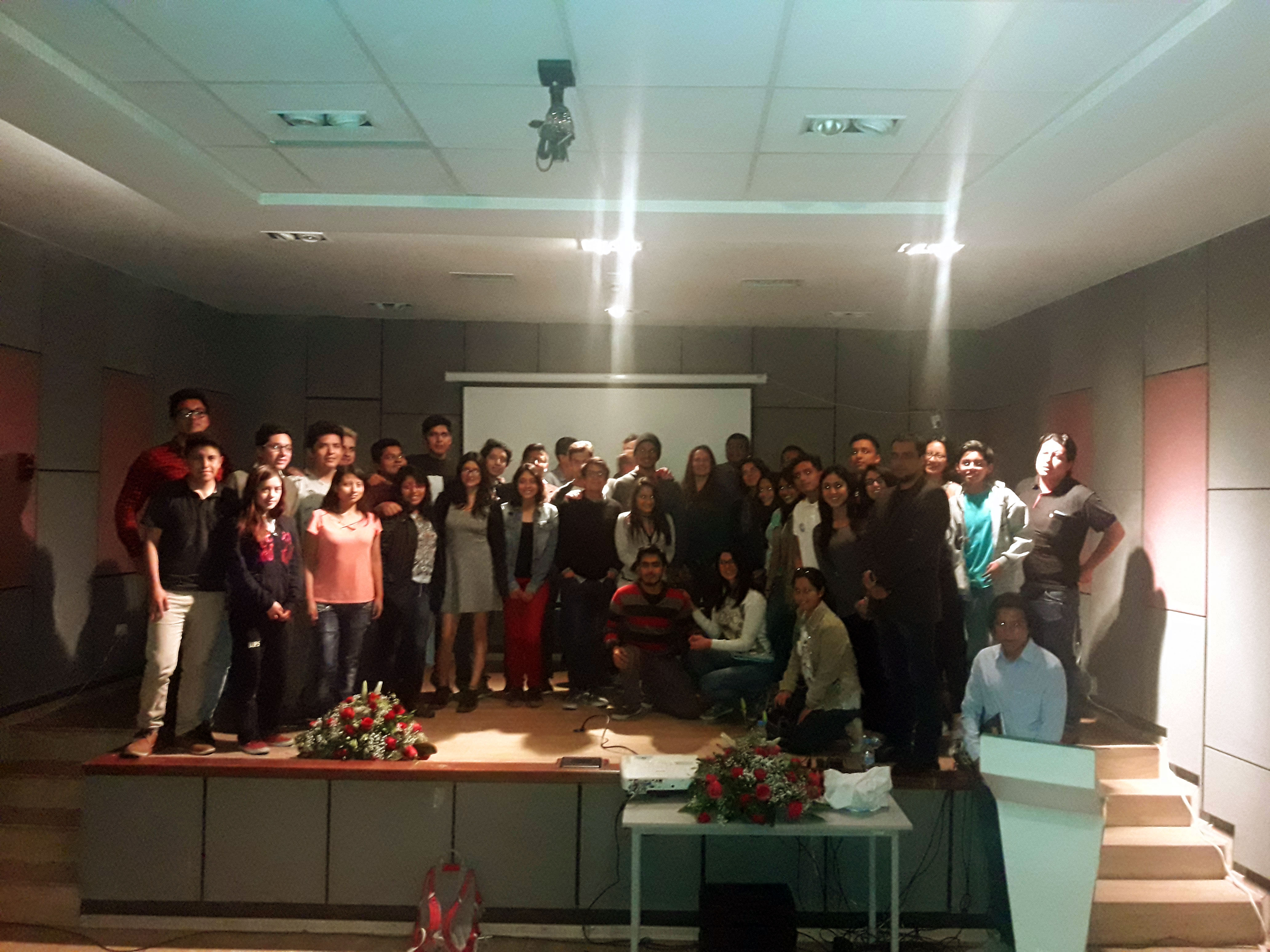This was our first event!

Look at the highlitghts of the simposium Evolución en los Trópicos, with PUCE, UCE, EPN and INABIO
The first symposium out of the six that Yachay Tech University is organizing in the frame of the Tunnel of Science took place on Saturday, July 8, 2017 in the Casa de la Cultura Ecuatoriana Benjamín Carrión. Some of the highlights:
- Over 108 participants attended this first event. The audience came from YT and other universities including UCE, PUCE, EPN, ESPOL, UDLA, UPS, USFQ, and UTE.
- The ten speakers were highly qualified and provided the audience with a captivating delivery of their topic.
- The presentations were very clear, informative and pedagogical, while keeping, overall, within the time limits.
- The audience was actively engaged in the Q&A period and expressed their appreciation to YT for organizing this symposium.
- The symposium ended with a reception that allowed further discussion between the audience, the speakers and the organizers.
In addition to the high quality of this topical symposium in the mega-bio/geo-diverse country of Ecuador there was an abundance of goodwill and collaborative spirit. The invited speakers from UCE, PUCE, EPN, INABIO and YT were quite enthusiastic for enhanced collaboration in research, education and outreach. Possible future joint ventures include the comprehensive mapping of the country’s genetic resources and rich evolutionary history while contributing to the generation of new scientific knowledge, conservation and mitigation of global climate change.
After this symposium it is clear that with close interaction between faculties (as this was an example between Biology and Geology) and Ecuadorian institutions science in Ecuador is headed for a bright future.
All presentation are now public for everyone to appreciate and be inspired by.
– Hugo Romero, Ph.D.
School of Biological Science and Engineering
Program
– Alfonso Molina, Instituto de Investigación en Salud Pública y Zoonosis, Universidad Central del Ecuador (UCE) :
« Las bacterias dirigen la evolución: la carrera que estamos perdiendo »
– Alysia Cox, Escuela de Ciencias Geológicas e Ingeniería, Universidad Yachay Tech (YT) :
« Coevolución de la química oceánica y la vida microbiana »
– Hugo Romero-Saltos, Escuela de Ciencias Biológicas e Ingeniería, Universidad Yachay Tech (YT) :
« Las plantas trepadoras en el registro fósil »
– Sofia Carvalho, Escuela de Ciencias Biológicas e Ingeniería, Universidad Yachay Tech (YT) :
« Con las raíces en la tierra y una mente abierta: cómo las plantas se adaptan al ambiente »
– Santiago Villamarín, Instituto Nacional de Biodiversidad (INABIO) :
« Evolución de cornamentas en insectos »
– Óscar Pérez, Escuela de Ciencias Biológicas, Pontificia Universidad Católica del Ecuador (PUCE) :
« Reproducción, sexo y embriones: evolución y desarrollo EVO-DEVO en el Ecuador »
– Mario Yánez, Instituto Nacional de Biodiversidad (INABIO) :
« Entre crestas, escamas, hemipenes y ADN: taxonomía tradicional y taxonomía integradora en anfibios y reptiles »
– Edwin Cadena, Escuela de Ciencias Geológicas e Ingeniería, Universidad Yachay Tech (YT) :
« Desde tortugas gigantes a células fósiles: una mirada a la evolución de la fauna de Ecuador »
– Luis Román, Museo de Historia Natural Gustavo Orcés, Escuela Politécnica Nacional (EPN) :
« Mastodontes, dientes de sable y perezosos gigantes durante el gran volcanismo ecuatoriano »
– Santiago Ron, Escuela de Ciencias Biológicas, Pontificia Universidad Católica del Ecuador (PUCE) :
« Descubriendo las ramas ecuatorianas del árbol de la vida »
